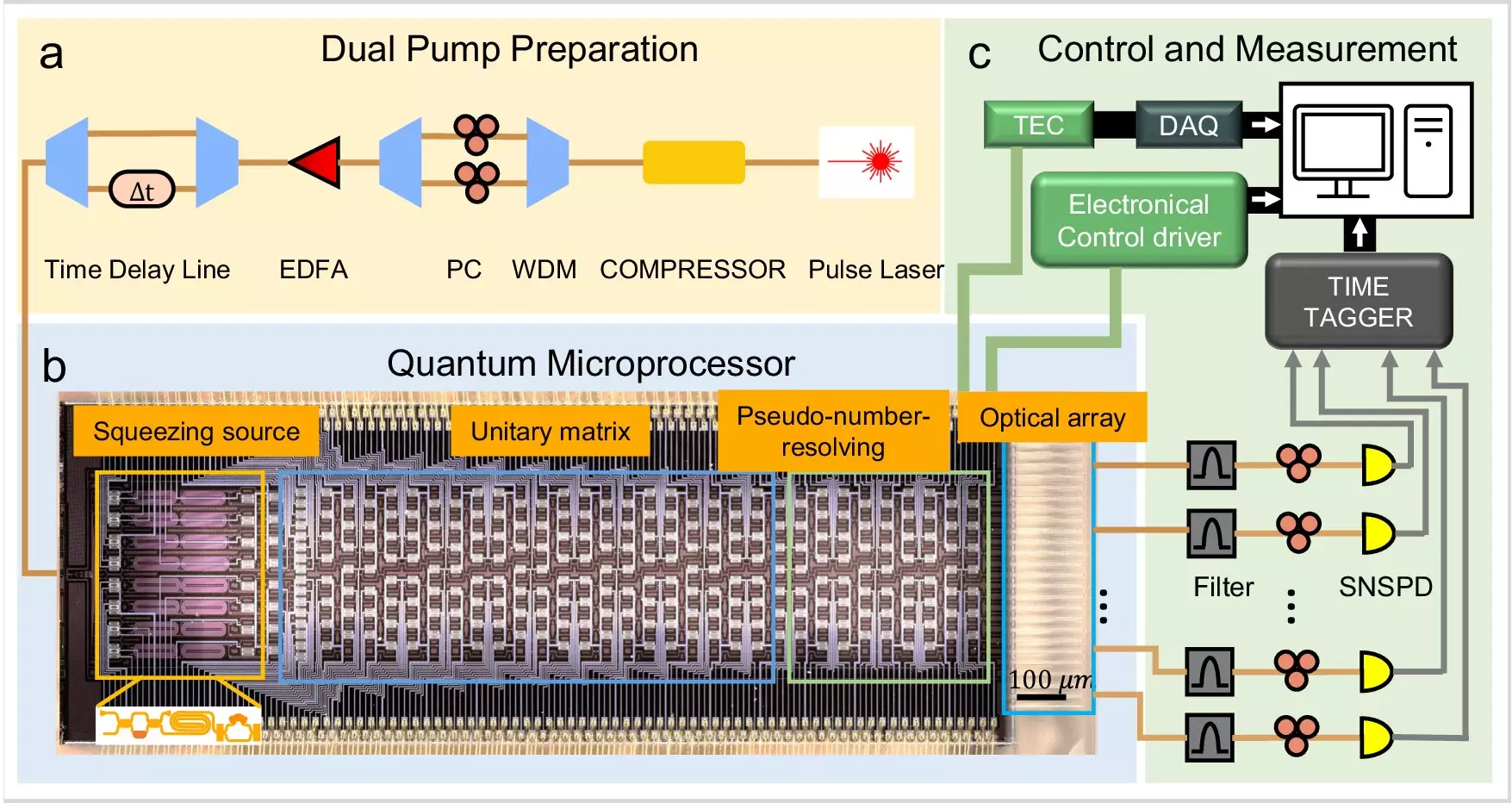Quantum simulation has opened new doors for scientists to explore complex systems that were previously deemed impossible to study using classical computers. This groundbreaking technology has applications across various fields, including financial modeling, cybersecurity, pharmaceutical discoveries, AI, and machine learning.
Achieving Precision in Molecular Spectroscopy
The exploration of molecular vibronic spectra is crucial for understanding molecular properties in molecular design and analysis. However, this has long been a computationally challenging problem that traditional supercomputers cannot efficiently solve. Researchers are now turning to quantum computers and algorithms to simulate molecular vibronic spectra, but they have been limited to simple molecule structures due to low accuracy and inherent noise.
Researchers at The Hong Kong Polytechnic University (PolyU) have made a groundbreaking achievement by developing a quantum microprocessor chip capable of simulating molecular spectroscopy of large and complex molecules. This is a world-first accomplishment that promises to revolutionize quantum chemistry problems beyond the capabilities of classical computers.
Pioneering Technology for Complex Quantum Tasks
Capturing quantum effects accurately requires meticulously developed simulations accounting for quantum superposition and entanglement, which are computationally intensive to model classically. The research team, led by Professor Liu Ai-Qun and Dr. Zhu Hui Hui, has successfully demonstrated a large-scale quantum microprocessor chip and introduced a nontrivial theoretical model utilizing a linear photonic network and squeezed vacuum quantum light sources for simulating molecular vibronic spectra.
The quantum microprocessor chip, with its 16-qubit design, offers a promising solution for solving complex tasks such as simulating large protein structures or optimizing molecular reactions with enhanced speed and accuracy. This breakthrough technology holds the potential for achieving quantum speed-ups in relevant quantum chemistry applications.
Quantum technologies play a crucial role in scientific fields such as material science, chemistry, and condensed matter physics. The integrated quantum microprocessor chip developed by the research team presents a significant advancement in quantum technology and opens up new avenues for practical applications, including molecular docking problems and quantum machine learning techniques. The team’s ultimate goal is to scale up the microprocessor and tackle more intricate applications that could benefit society and industry.
The advancements in quantum simulation, particularly in molecular spectroscopy, have paved the way for groundbreaking research and technological development. The integration of quantum microprocessor chips represents a revolutionary step towards solving complex problems that were previously out of reach for classical computers. This breakthrough technology holds immense potential for transforming scientific research and industry applications in the near future.


Leave a Reply